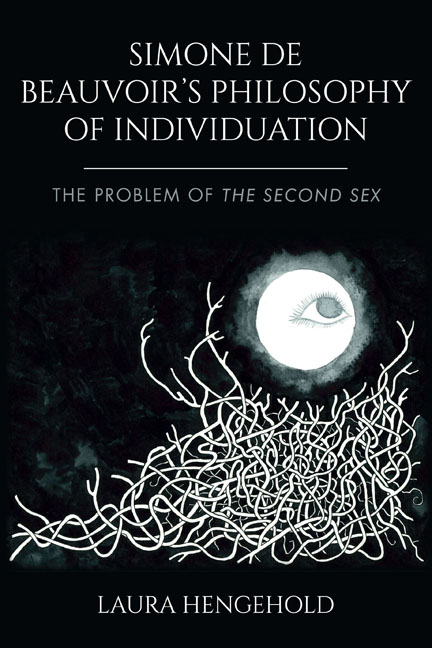5 - Territories and Assemblages
Published online by Cambridge University Press: 23 June 2018
Summary
A novel is a ‘problematique.’ The story of my life is itself a problematique. I don't have any solutions to give to people and people don't have to await solutions from me. It is in this regard that, sometimes what you call my fame, people's expectations of me, bothers me. There is a certain unreasonable demand that I find a little stupid because it would enclose me, immobilize me completely in a sort of feminist concrete block.
The Second Sex had enormous international impact. It appeared before the emergence of second-wave feminism, and influenced Betty Friedan, whose The Feminine Mystique was responsible for the resurgence of liberal feminism in the United States, as well as numerous feminist ideas emerging from the American activist left, such as those of Shulamith Firestone. Excoriated by a largely masculine literary press on its first appearance in France, it was nonetheless well received by women. During the 1970s, it was once again attacked by French feminists emerging from a psychoanalytic, anti-existentialist intellectual culture.
In the United States, despite a truncated translation, Beauvoir's popularity among activists endured and professional philosophers sought to claim her as one of their own, although she had primarily been regarded as a novelist in France. During the 1980s and 1990s, however, real and superficial improvements in the situation of American women made The Second Sex seem out of date to younger feminists, who were, moreover, attempting to understand their place in the history of international colonial and racial domination more accurately. The publication of Beauvoir's letters with Sartre challenged the ‘official’ image of the couple that had been built up in the media and by her memoirs, while European scholars were busy revising the place of existentialism in the Resistance and immediate post-war period.
As Penelope Deutscher has pointed out, there were tensions in The Second Sex between multiple disciplines and conceptual methodologies on which Beauvoir drew to portray women's ‘lived experience’. Mariam Fraser, like Foucault, suggests that we do not even have a concept of the human ‘individual’ except insofar as built up by a plurality of disciplines and scenes of interaction and imagination.
- Type
- Chapter
- Information
- Simone de Beauvoir's Philosophy of IndividuationThe Problem of The Second Sex, pp. 129 - 161Publisher: Edinburgh University PressPrint publication year: 2017



